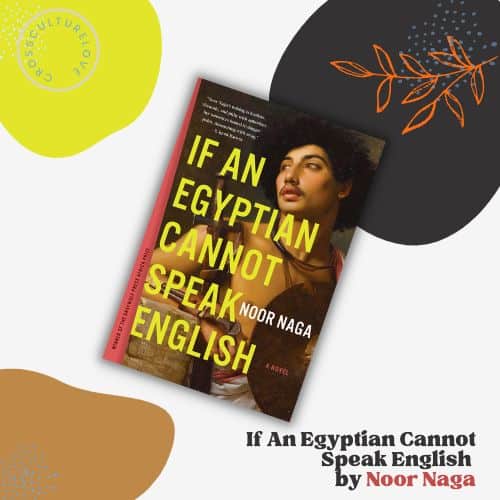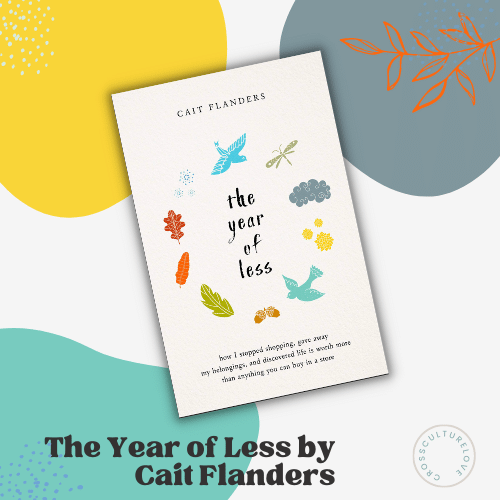
If An Egyptian Cannot Speak English – A review of a fascinating clash of cultures
I’ll start this out by saying I read If An Egyptian Cannot Speak English by Noor Naga in a single day, which is rare for me. I enjoyed this book because it was a fascinating look into modernity vs. tradition, Western vs. Middle Eastern perspectives, and how we view cultures from our own ideologies.
If you haven’t read it, buy it here (Affiliate link)
I actually listened to the If An Egyptian Cannot Speak English audiobook, which was actually quite different for me because I find it often challenging to focus on fiction audiobooks and did not have this problem with If An Egyptian Cannot Speak English.
If An Egyptian Cannot Speak English was almost too relatable.
Have you ever read a book and thought, “This book is not for me; I am clearly not the intended audience”? Well, I felt the exact opposite while reading If An Egyptian Cannot Speak English. As someone from America who lives in the MENA region with a North African husband, this book is a fascinating look into how these two cultures interact. There were parts I felt I could have written; they were so relatable. The intriguing glimpse into the aftermath of the Arab Spring, the disillusionment of being ground down by a poor economy and extremely little upward mobility, and the struggle to navigate a relationship where modern realities brush up against ancient and religious mindsets.
The part that I thought was most interesting was where the protagonist discusses the fact that she works during the day, brings home the food, and prepares it while the boy sits there, smoking and watching YouTube on his phone, expecting to be waited on after a long day of doing nothing. I think this is such a fascinating look into how traditional cultures are failing to adapt to modern life, and is something I see on a daily basis living here in Morocco. Women these days are forced to work and do all of the cooking and cleaning, often while the men do nothing and earn nothing.
The boy discusses how he was socialized to feel this was right, normal, and acceptable by his grandmother doting on him and never expecting him to contribute nor teaching him how. But this concept of normalized indifference to household contribution simply doesn’t work in modern society, in modern relationships. Traditionalism upholds this conception of gender dynamics, but the economy does not support it. Women doing the domestic chores and childrearing when the men made enough money to support the family made sense. But it certainly doesn’t make sense anymore, and the MENA region is struggling to come to terms with this while not letting the women suffer and labor endlessly while still bolstering the ego of men. It seems that the modern North African man wants his cake and wants to eat it, too, and society is upholding this push for traditionalism for the sake of women who are now expected to hold everything together.
Some modern men recognize this change (like my husband), but many fail to recognize a need for a shifting mindset because… that’s how things have always been.
If An Egyptian Cannot Speak English’s unique writing style
(Spoilers ahead)
The last section of the book is sort of a meta-commentary about the book as told by the author’s classmates, which reorients the book after the death of the boy from Shubra Khit as if the book were being presented to a literary class, which gives some classmates of the main character some criticisms about the book.
This whole reframing in the last section should have been corny as hell. And in some ways, I could see that being a valid criticism. But I personally loved it. Firstly, because it answered some of the questions I had about the book in a quite tongue-in-cheek and very clever way.
But more importantly, it was such an incredibly innovative and fascinating way of further illustrating the stark differences between Western liberal culture and traditional Middle Eastern culture. The contempt, judgment, and lack of understanding by the protagonists’ classmates further reinforced the chasm between Western ideology and Egyptian reality.
The book spends a lot of the time humanizing the boy from Shubra Khit, while simultaneously shedding an unforgiving light on his abusive qualities. I find this fascinating because very few people fit into neat little boxes like the labels we try to put on them. Most people who are abusive have been abused, and aren’t abusive 100% of the time. Does this excuse their abusive behavior? No, but they are human and contain humanity nonetheless. It’s so much easier to write them off than it is to recognize their innate flawed humanity and the systems and beliefs that perpetuate the abusive behavior.
Criticisms of If An Egyptian Cannot Speak English
After reading If An Egyptian Cannot Speak English, of course, I had to read through the reviews and naturally there were some (valid) criticisms leveled against the book by people who have far more knowledge about Egypt and Egyptian culture than I do. Most of the criticisms centered around the lack of authenticity regarding Egypt and the Egyptian experience, which I certainly cannot speak to.
That being said, I feel like the fact that the author doesn’t know about Egyptian culture and heritage was kind of the point. She is Egyptian by heritage but not necessarily by upbringing, and her parents fled Egypt decades before she ever came back. It makes sense that all of her knowledge would be secondhand at best, and the Egypt of now is seen through the lens of a very westernized protagonist. I feel like this point was further reiterated in the last part of the book, where the boy from Shubra Khit was stripped of all nuance and painted with a wide, unforgiving Western brush.
Conclusion for If An Egyptian Cannot Speak English
I don’t know if I would’ve liked this book as much had I not been literally living in the Middle East/North Africa region, married to a North African, and experiencing the day-to-day life of the protagonist. But I think it speaks very highly to the quality of the book that I was able to relate to it so much and so poignantly. Regardless of whether or not you can relate, it is a well-written and engaging book that I enjoyed quite a lot.
I highly recommend If An Egyptian Cannot Speak English to anyone interested in a look at modern life and dynamics in the Middle East/North Africa region or is navigating a complicated relationship with someone from there.





